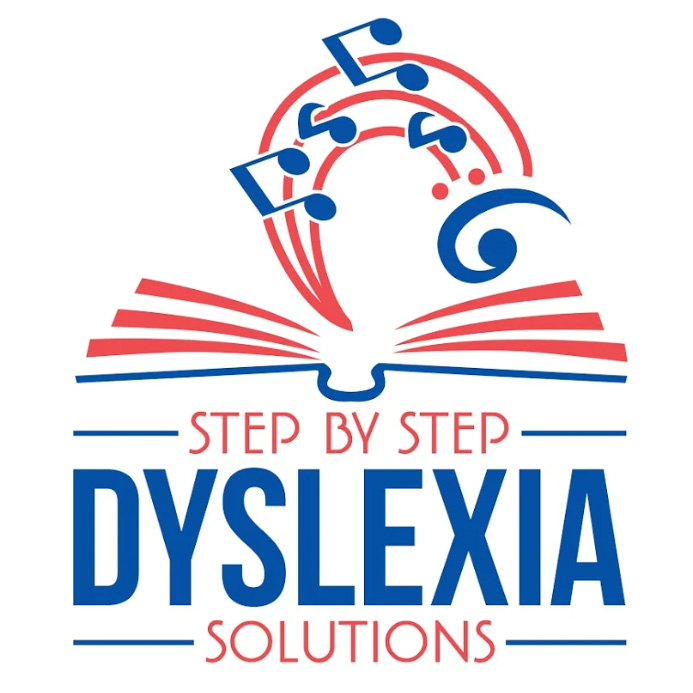Dyslexia – Interview with Marianne Young, Author of “Raising Exceptional Children”
I want to introduce to you someone who I just admire so much. I love the talent I can have on this YouTube channel, so I want to introduce to you, Marianne Young. I’m going to share a little bit about her before we bring her on to meet you. She became an advocate for children, starting with her own advocacy for her son when he was in the third grade and now, he’s a high schooler.
So, listen to her bio: she is the vice chairman on the board of Access to Independence; she’s on the executive board and a member of the Autism Hope Center; she’s a network leader for the Autism Society of Alabama, and she sits on the advisory council for the Department of Behavioral Health and Developmental Disabilities. She’s also a recipient of the NAACP’s Community Hero Award and she’s the author of a really good book, “Raising Exceptional Children”.
So, would you please join me in welcoming Marianne Young?
Hi, Marianne.
Hi, how are you?
You are the only person that I know that spells your name the same way I do. It’s great to have you today. I just gave everybody a little brief introduction about you but if there’s something else you’d like to share with the audience before I ask you all of the questions that I’m going to ask you today.
No, you encompassed it really well. I started this not too long ago, fighting for my own child and so I know what it feels like to be in the position that a lot of these parents are facing. While I do a lot with boards related to autism, my son does also have profound dyslexia.
Let me first ask you about your son’s self-esteem. We know that kids who suffer from dyslexia and autism don’t have that strong self-esteem. Have you seen his self-esteem esteem improve since he’s been getting remediation?

Absolutely, he was very shy about academics; both math and reading. He struggled in both areas and when he started getting better, he responded fastest to the math remediation. He already had kind of a mind for that he is considered gifted as well. So, once he kind of got what he needed, that took off. And so, having a strength really helped him and from there, I saw him trying more in other areas, even reading, despite how difficult it was for him.
What are some of his gifts and talents? Because we know that dyslexic children actually excel in many areas other than reading. Do you want to share a little bit about that?
Yeah, he’s a builder. He wants to be an engineer, so Legos. He likes all the STEM toys; connecting circuits, making little radios at home. He’s a science and engineer lover and he’s really, really brilliant, actually.
That’s really neat and I know dyslexic people can see in three dimensions and they love hands-on projects and I personally know a dyslexic man who’s an ice carver and he can see the figure inside of the ice that he wants to carve out. I can see that in engineering. That’s wonderful that your son has such high aspirations and he’ll achieve those with your support.

I believe it.
Let me just let the audience know a little bit about your expertise as an advocate because while I used to advocate for people, I would rather not advocate, so I can promote my reading program and my training for teachers. But every day, I talk to people that want to know what to do, so it’s nice to know there’s an advocate I can send them to. So, tell me a little bit about how a parent starts the process of first of all getting their child assessed for dyslexia, and how do they get the hours that they really need so they don’t have to take them out of electives or have them start in zero period if they’re in high school.
Who Diagnoses Dyslexia?
Yeah, so if you’re really getting started with the process, the question usually starts with, “Can i just get assessed through school, or do I need a private evaluation as well?” I honestly recommend that you get a private evaluation as well if you can afford it or if your insurance covers it. It is very beneficial. And then most states don’t have a dyslexia law, so the way you get to the appropriate reading program in the appropriate hours is: one, you have to establish that your child has the condition and that’s where a diagnosis really does help because dyslexia is a very specific learning disability. And that doesn’t necessarily flow the other way. So, dyslexia is a specific learning disability but a specific learning disability isn’t necessarily dyslexia. Get the diagnosis and then the way you connect it is using research. We have 70 years of research to show how these children need to be taught. I laid it out in a document for my son’s team, just to show this is what the law requires, and this is how he meets that criteria, so it becomes very visually obvious.
But you were met with a lot of opposition from the school district, right?
Yes, yeah. I got all the same things that people are still getting today: “We can’t evaluate for dyslexia.” They told me initially that he could not proceed with special education without an evaluation, that they couldn’t evaluate and that he needed a diagnosis. The way around that is; and it took me a long time, I was starting from nothing and I had no clue; it’s to put it in writing. I had meeting after meeting, and they would always find a way to circumvent me. I would do a little reading and it says if you suspect a disability, they have to evaluate but, in the end, they still didn’t do it. So ultimately, I looked up some testing that they do for dyslexia and I wrote a letter: “I want you to do this test and this test and or any and all available equivalents,” because I just knew that if I said do this test they would say “we don’t have it” and they wouldn’t offer an alternative. So, you have to really make it so ironclad that they couldn’t circumvent me and finally, that’s what worked.
And my heart goes out to the administrators because I know how hard they work and their plates are so full and there’s standards to meet but my heart goes out to the parents too, who fight for their kids to get the help they need. Sometimes we just have to be made up the priority and it’s the parent who writes the letter and speaks up that gets the attention. One of the things I’ve offered parents is let me do a screen so that you can bring that screen as a first step to the school, and some of the cases of dyslexia are pretty mild and we can start intervention right away with a screen, instead of waiting is it 60 days before the school will actually get that original letter from the parent and promise we will have the assessment in 60 days.
But the screenings are so important, and they tend to be a lot more affordable than full-blown evaluations and I frequently have my clients that don’t have the economic means to pay for a full evaluation to get a screening because it is helpful. It’s very helpful.
Good, yeah, and the other thing I tell the parents is we could get started with something now. Let’s get intervention started but ultimately, we do want this school to pay for it and sometimes there’s families who can afford it themselves and they don’t want to wait or even hassle with the bureaucracy. So, there’s just not enough people trained to work with the dyslexic children. Did you find that when you were advocating for your son that now they know he has Asperger’s and he has dyslexia, but they just don’t have people trained specifically in dyslexia to help him?
That was a huge barrier. So, he was identified for special ed in kindergarten but still in third grade he was only reading 30 words and I kept asking, “Why? This doesn’t make sense,” and nobody really knew. But once it clicked that this is what’s going on, I couldn’t find anyone in my area that was Orton Gillingham trained or certified and I turned to the internet and it’s turned into a huge buzzword. So, all the tutors had that tag when you searched it, they came up, but when you get to reading their bios and their certifications and that was never in there, unfortunately.
Yeah. Well, that’s interesting, and that’s something that I’m actually in the practicum for right now for Orton Gillingham certification because I have always claimed to use Orton Gillingham methods with my reading program and just to have that validity to know that people who are saying that actually are using those multi-sensory Orton Gillingham approaches is really important. So, let me ask you, the schools want an outside individual evaluator or the IEE. Can you give parents some of the strategies or the do this or don’t do that when their school says they need to find an outside evaluator?
How to Get Dyslexia Testing
Sure, so with IEEs, it’s independent educational evaluation. Usually when people are saying that they mean at public expense but that that little modifier is left off quite frequently, but you can do it at your own expense but there is a way to do it through the school district. And you want to put it in writing. Document, document, document. That is the backbone of getting your kid the correct services. So, you want to document what’s going on but if they’ve done an evaluation and you disagree with it; you know I’ve seen evaluation reports where the kids’ whole family history is wrong in it. If they’ve made egregious simple errors like that, you might want to look at having somebody else evaluate your child. So, you do not have to tell them why you disagree with the evaluation, but it is helpful because they have a choice, they can say “yes” and give you kind of permission to do this and the law says “without unnecessary delay” or if they want to decline, they have to file due process, which is a court case, essentially to defend their evaluation. Some states and districts are more likely to file due process than other states or districts, so you kind of have to know what’s going on. But if you don’t want to go that far if they go file due process, you can always withdraw the request. But I say try it because a lot of times they will just give it to you. It’s cheaper oftentimes to pay for the evaluation than it is to pay a bunch of attorneys. So, write the letter.
If people don’t know who to go to get their assessments done, if I refer them to you or they go to you, can you refer them to these independent evaluators?

Sure, I absolutely can, and if you request from the school district, they can give you a list; the law requires that they have a list available of providers, as well. Now, you don’t have to choose somebody on their list, but they have to give you a list. Usually, there’s not a lot of limitations around who you can choose; they have to meet minimum educational criteria. Just like the person in the school does, they have to be qualified and have a high enough degree to do the testing, like you do, right? And then generally, they have to charge what’s called a community rate, so like Medicaid type rate. But outside of that, you can pick anyone, really. Certain people do better reports than others, so I think that should definitely be a consideration. If you ask people on Facebook, sometimes they tell you, “Oh, go to this guy he’s so nice,” but that doesn’t necessarily mean he’s going to give you the best report or do the best testing, which is really important. But I can absolutely refer them, and they can get a list from the school district, as well.
Okay and just so parents know, the report has to be really thorough and accurate, in case it does have to go with an attorney, and that’s the due process. But a lot of parents don’t want to go that step, so usually the schools will change their tunes when they know that you have an advocate, and they know that you know what you’re doing. The other thing I wanted to say was when I was training to be an advocate, I was taught always get the list from the school because that shows they’ll pay for it. But still bring your own IEE, because theirs might be just saying what the school wants them to say. Does that ring a bell? And I’m probably getting some people in trouble, I don’t know.
Who Diagnoses Dyslexia?
Yeah, so, if they’re on the list chances are that the school has researched them and knows that they already charge the community rate or have the minimum criteria. Perhaps they’ve already been used as a vendor. So it could go you know either way might the school district have a certain connection to them because they pay the bill. Yes, I’ve run into situations where there’s a local psychologist that I sent a lot of IEEs to and she thought she was being contracted by the district, “Oh, they’re contracting me now.” Well, they’re contracting you because I’m forcing them to pay for your evaluation. But you do have to be careful. Ideally, I would probably choose somebody off the list, personally.
Dyslexia Testing Online
That’s the bottom line. Get the list but choose somebody off the list. So we want to keep these interviews short so people’s attention span will let them hear the information and I want to give you an opportunity to let people know how they can reach you, Marianne.
Sure, I’m on Facebook and I have a website exceptionaladvocacyservices.com and it’s the same on Facebook. Feel free to email me, message me. I’m always available and we’ll help anybody out in any way I can. I know what it’s like. Well thank you so much for your time, Marianne and I want to thank the audience for tuning in today. If what we have shared has inspired you, please subscribe to the YouTube channel, like us and share us. And if you wouldn’t mind visiting our website at dyslexia-solutions.com, consider making a donation, because any amount will help, and this will help us get our message out. So, I want to thank you for being with us today. Thanks again, Marianne Young and we will talk soon. Thank you. Bye-bye now and I’m Dr. Marianne Cintron.

